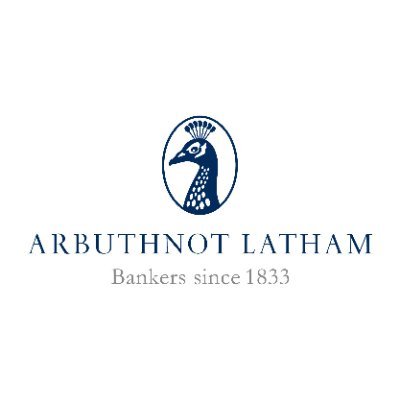Arbuthnot Banking Group PLC (LON:ARBB) has provided the following statement regarding the trading performance of the Group for the four months to 30 April 2024 ahead of the Annual General Meeting due to be held later today.
Highlights
· Loan Balances including Leased Assets at 30 April 2024 of £2,370m (30 April 2023: £2,234m, 31 December 2023: £2,332m) a 2% increase compared to 31 December 2023 balance and a 6% increase year on year.
· Specialist lending divisions have grown their loan balances by 7% since 31 December 2023 to £817m, representing a 34% increase year on year (30 April 2023: £607m).
· Deposits of £3,646m (30 April 2023: £3,268m, 31 December 2023: £3,760m) a 3% decrease since the year end and a 12% increase year on year.
· Funds under Management and Administration of £1,873m, a 10% increase against 31 December 2023 and an increase of 36% year on year, driven by strong net flows.
· The business model of lending funded by low cost deposits, while maintaining significant levels of surplus liquidity has continued to benefit from higher interest rates.
Summary
Following the increases in the Bank of England (BOE) Base Rate (BBR) during 2022 and 2023, the rate has remained stable at a 16 year high of 5.25% for 2024 to date. The business model which is designed for higher interest rates has therefore benefited from this as intended, with higher revenues generated from both lending balances and the Bank’s high levels of liquidity reserves.
As reported in prior periods the repricing of deposits lags behind that of assets. However, with 9 months elapsed since the last base rate rise, the deposit book has now materially recycled and the overall rate on the book has normalised for the current BBR with the overall cost of deposits being 3.22% at the end of April. With inflation falling there is a market expectation that the BOE will announce a reduction in the BBR later in 2024. As set out at the time of Arbuthnot Banking Group’s annual results, the Bank has taken action to mitigate some of the impact on net interest margins from future rate reductions, before deposit pricing adjusts, by investing into high quality fixed income assets such as Gilts and continuing to grow its specialist lending balances, most of which are at fixed interest rates.
Deposits have reduced by 3% since the year end to £3,646m, due to seasonal client tax payments along with non-relationship deposits maturing and not being renewed as these are the most expensive to maintain. Meanwhile, the strategy of growing low-cost relationship deposits within the Commercial bank continues to gather momentum with client growth across all the target sectors.
Loan balances, including leased assets, for the 4 months to the end of April increased to £2,370m, equating to 6% year on year growth, and marginally up on the year-end balance of £2,332m. The specialist lending divisions have grown their balances by 7% in the 4-month period to the end of April. Notwithstanding the growth in lending balances, the Group continues to maintain tight credit discipline whilst the economic back drop remains volatile.
Banking
Banking closed the period with loans of £1,431m, 3% up from the end of 2023, as a result of lower-than-expected repayments, over and above contractual payments, coupled with on plan gross lending.
Net client growth across private and commercial banking increased 11% year on year following the investment into new segments over the last 12 – 18 months.
Private Banking deposits reduced due to client tax payments with the expectation that balances will be replenished as the year progresses. Conversely Commercial Banking deposits have increased across all target segments. Arbuthnot Banking Group’s strategy continues to focus on low-cost relationship deposits, and, accordingly, expensive non-relationship balances have been reduced.
Loan book quality remains strong despite the macroeconomic environment. The Bank’s cautious underwriting approach with low LTV ratios, is resulting in any new defaults being exited with little or no loss.
Wealth Management
Funds under Management and Administration (FUMA) at the end of April were £1,873m, up 10% from the start of the year. YTD inflows were £171m compared to £74m over the same period last year with net flows for the period of £112m.
Arbuthnot Commercial Asset Based Lending (ACABL)
ACABL has continued to support existing clients with renewals, additional facilities and acquisition support, particularly where clients have a buy and build strategy. As reported at the time of the Group’s 2023 annual results, limited new client facilities have been written due to fewer transactions in the Private Equity market. Despite this the loan book grew 3% since the start of 2024 to £248m.
Advisers continue to support a preference for ACABL structures over leveraged finance in a continuing higher interest rate environment and lower inflation, along with an anticipated reduction in interest rates, is expected to prompt an increase in mid-market PE deals in H2 2024.
Whilst the business continues to observe a higher number of watch cases compared to prior years, the loss rate remains very low due to the high quality, liquid assets, as well as close monitoring of the collateral.
Renaissance Asset Finance (RAF)
RAF finished the period with a loan book of £217m, up 10% from the year end, with 49% year on year growth and new business up 53% compared with the same period in the prior year.
The business continued to broaden its offerings in the wholesale funding sector, offering new and additional funding through block discounting facilities and revolving credit facilities to specialist finance businesses with successful track records.
Asset Alliance Group (AAG)
Despite the current economic headwinds, AAG has generated a strong flow of originations to finish the 4 months with assets available for lease of £351m, up 7.4% since the end of 2023. Yields, whilst under pressure in certain areas have improved in others, with an average yield on new business of 8.16% for the first 4 months of the year.
All new assets delivered for the new Bus Rental Division, launched towards the end of 2023, are being fully utilised with current yields in excess of 10%. The Commercial Vehicle sector is experiencing higher levels of customer uncertainty coupled with significant pricing pressure from competitors. However, clients with larger, stronger fleets have confirmed to be on plan for annual fleet replacements.
Trading for used truck sales remains subdued. Margins have tended to be maintained, however demand and stock turnover has yet to fully recover from the post Covid lull.








































